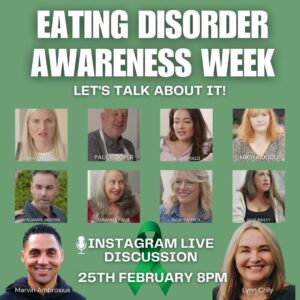Latest NHS figures show hospital admissions for eating disorders are soaring.

A leading expert today warned that soaring numbers of people suffering from eating disorders are unable to get the help they need.
Lynn Crilly’s warning comes as new data reveals NHS hospitals have recorded an 11 per cent rise in cases over the past 12 months.
According to official statistics, the NHS dealt with 31,751 cases for conditions such as anorexia and bulimia between April 2023 and April 2024.
Of those admitted 6,408 cases involved someone aged 18 or under.
The total admissions is up 11 per cent from April 2022 to April 2023 when hospitals recorded 28,533 cases (6,468 being aged under 18).
It means hospitals are now dealing with almost 90 cases every single day.
Last night Ms Crilly, a counsellor, author and film-maker, who specialises in supporting those with eating disorders, called for urgent Government action to support sufferers and their families
Ms Crilly, who will release a star-studded short film later this year called A Day In The Life Of An Eating Disorder, said: “These figures are deeply alarming although, sadly, they are not surprising. This data shows how on average, hospitals are dealing with nearly 90 admissions a day. It’s an alarming number of people..
“But I’m seeing more and more cases of young people and adults suffering from eating disorders and not being able to get the help and support they need.
“We urgently need to improve the availability of treatment we can offer to people and their loved ones particularly early on in their diagnosis, otherwise we’re only going to see more and more people going to hospital.
“The fact that social media platforms are still flooded with accounts promoting dangerous eating habits shows there is more which needs to be done to tackle harmful online behaviours.
“We need a complete review and eating disorders awareness week is a great opportunity to look again at how we prioritise these illnesses and make sure we are not failing sufferers and their families as eating disorders destroy the lives of both the sufferers and their loved ones.”
Ms Crilly who has campaigned on this issue for the last two decades has also found
that social media firms are not removing dark and harmful content from their platforms.
Dozens of accounts on social networking sites, including X, Instagram and Telegram extol the so-called virtues of eating disorders.
That’s despite tech giants taking expensive measures to ban hashtags and search terms to prevent impressionable young people being lured into being obsessed with losing weight and their body image
Some influencers on social media have tens of thousands of followers and flood their timelines with messages about extreme weight loss.
One account on X, which we are not naming, has 90,000 followers and is publishing a post containing statements about weight loss literally every 60 minutes.
Another called has over 52,000 followers and numerous pictures of people who were painfully thin, often with protruding rib cages.
The UK’s Online Safety Act means social media firms are legally required to actively remove illegal and ‘harmful’ content, particularly if it could be harmful to children.
But so called “thinfluencers” get around the tech company bans by high jacking hashtags and terms that are supposed to be used by those recovering from and coping with an eating disorder.
Tell-tale signs of people who are curious about rapid weight loss often use “BMI” in their bios and their posts show an obsession with keeping the number low.
Others use the terms or display a behaviour called “bodychecking”, which is a repetitive habit of taking images or looking in mirrors to see how thin they may look.
On Instagram, there were 1.2 million posts containing a hashtag often used by ED promoters – “#anarecovery”, and there were 113,00 for another called “#bed recovery”. One Instagram user included images of herself looking painfully thin and one post included the message: “My eating disorder makes me feel better so much faster than recovery does”.
Academics have identified trends on other networks like TikTok as potentially promoting diet culture, including memes like “jawline checking”.
At least 1.25 million people in the UK are living with an eating disorder, according to the charity BEAT. The majority of those suffering will not require hospital treatment but can be cared for by specialist community services.
A survey by the NHS in 2023 revealed that one in eight 17- to 19-year-olds were identified as having some form of eating disorder, with rates four times higher in young women than young men.


